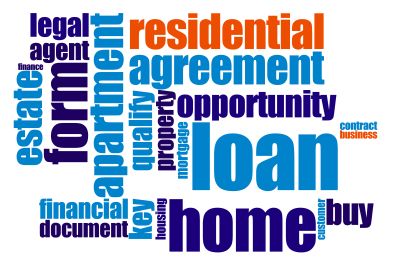If You Think You’ll Ever Need a Mortgage – Read This

You’ve only just started reading this article and I can already sense you wanting to click away. We often want to put off thinking about our mortgage.
It’s a complex and kind of scary thing. But it really is worth thinking about as early as possible. This goes double if you’re in your 20s, the age at which everyone seems to be predicting your future doom.
Soak in the information this jumbo article has to offer you.
Get Started Before You Start Looking
I nearly opened this article with “So you’ve seen a house that you like and you’re thinking of getting a mortgage”.
But this would able imparting some implicitly bad advice to you. The fact is that you should already have started the mortgage process before you even started looking for a new home.
You want to be in as strong a position with sellers as early as you possibly can. And if you haven’t started preparing your mortgage already then you’re putting yourself at a disadvantage.
For one, the process reveals to you how much you can borrow and how much you can afford. You also put yourself at risk of sudden problems with the mortgage derailing your plans.
The better prepared you are, the smoother the process will be – and the more a seller will want to work with you.
Before You Get Started
There are a few things you’ll want to consider before you go any further. These include fixing any debt you currently already have, as well as the locality of the lender you want to work with. An earlier article has you covered!
What Kind of Mortgage Do You Need?
There are several types of mortgages you can get involved with. Which one you choose will depend largely on your available assets. These assets could be money you have now or money that you believe you’ll be receiving later.
Check out this list of the most common mortgage types. This list isn’t exhaustive; it’s just a starter!

#1 Standard Variable Rate Mortgage
It’s important that you know this, so we’ll start with this one. Should you get this type of mortgage?
Probably not.
The SVR is the interest rate that any given lender will charge their customers. The red flag here is this. Lenders have total freedom when it comes to setting this rate. The reasons for any given rate being as high as it is are usually hard to understand.
This confusion is created purposefully as it detracts from the borrower’s scrutiny. The most simple explanation is generally that they just want to keep their profits high. SVR mortgages are usually the most expensive type of mortgage.
More than any other mortgage, this one puts you at the mercy of bankers and lenders. Avoid unless absolutely necessary.
#2 Repayment Mortgages
Repayment mortgages are the king of the mortgage world. They’re the most popular and the easiest with which to get to grips.
Every monthly repayment consists of paying back some of the capital amount and the resultant interest. This means that your debt can only go down.
It can be the only way to guarantee that your debt is being paid off. By the end of the agreed term, your debt will have been paid.
#3 Interest-Only Mortgages
Interest-only mortgages do what they say on the tin. At first, anyway. They’re good for people who can’t afford to, or don’t want to, pay high monthly figures.
Each month you only make repayments on the you’ve accrued. So what about the capital amount? There’s the catch: you have to pay that back in one lump sum at the end of the mortgage term.
So all that money you’re saving each month by only paying the interest will probably have to be put towards paying the full bill at the end anyway. If you don’t save properly, you’ll find yourself having to come up with a huge amount of money very quickly.
For some, that has meant selling their home to avoid repossession. If you’re expecting a big payment in the future then this could work for you.
Side Note: I’ve had this kind of mortgage already and it is not one that I recommend. The payments were much smaller but I ended up with the same amount of debt in the end.
#4 Fixed rate Mortgages
Getting mortgages at a fixed rate is becoming very popular. Most of the mortgages that have been taken out in the last few years have been fixed rate mortgages.
The interest you pay back monthly is kept at a fixed rate for an agreed amount of time. This is usually a few years. This can work as great protection if the bank suddenly starts increasing its standard interest rate.
Whatever they do, you will continue paying the same rate. However, this could work to your disadvantage if the bank actually lowers its rate. You could end up stuck making more expensive payments than everyone else.
Another thing to keep in mind are the early redemption penalty fees. If you need to move out your home before the mortgage term, you’ll have to pay a large fee to get out of the agreement on the previous home.

#5 Tracker Mortgages
This specific type of mortgage is found in the United Kingdom, but is found in similar ‘adjustable rate’ forms in the United States.
These rates respond directly to the base rates set up by the Bank of England. This is great for transparency; you know when the bank have raised their base rate, so you know when your own rate will be affected.
You’ll also know by how much it’s been affected. It is here that the difference between standard variable rate mortgages and other mortgages are made clear.
If the bank lowers its base rate, an SVR lender isn’t obligated to lower the borrower’s rate commensurately.
Here, a lowering in the bank’s base rate ensures your rate is lowered. Of course, there’s also an element of unpredictability that will put many people right off.
#6 Flexible Mortgages
Flexibles mortgages can take many forms (including offset) and have an array of extremely useful features. They are all aimed at providing flexibility, something that is missing from most mortgage agreements.
You can set up an overpayment arrangement that allows you to pay a lot more per month. This can save you a lot when it comes to interest rates (which is why other lenders don’t want you overpaying).
Some lenders will even allow you to ‘borrow back’ any amounts that you’ve overpaid. You can also apply for payment holidays if you need a temporary respite from monthly payments.
The catch here is that fees and interest rates could be higher than with other mortgage agreements.
Speak to a Professional
I can almost hear some of your brains protesting right now. Yes, this is a lot of information. The world of mortgages is complex. But you can’t afford to let your sight go blurry here; to get the best value, and the ensure your future financial security, you need to be on top of all of this.
If you have any doubt at all, you should speak to an independent mortgage adviser. Even if you think you’ve pretty much got it, you should still speak to an independent mortgage adviser.
Someone may have advised you already to speak to a mortgage broker. What’s the difference? At the moment, there isn’t one. We use the terms adviser and broker interchangeably.
They are available all over the country, including California Mortgage Advisors on the west coast. Some charge upfront fees and some don’t charge you at all unless they successfully find you a deal.
What they do is go through the market with a fine tooth-comb in order to locate good mortgage deals. Needless to say this saves you a tremendous amount of time. They should also know each lender inside out.
This also saves you time. If you’re unlikely to meet the criteria of one lender, you’re more likely to find out without having to go through the initial stages with them.

If you have a friend that has used a mortgage adviser, ask them for recommendations. It’s great to be on friendly terms with your adviser as you could be working with them for a while, so having a common connection could be useful.
In any case, you should confirm with the adviser what their charge will be as soon as possible. None of them should charge more than around 1% of the total mortgage value.
You also need to ensure that they’re qualified to advise you! Wherever you are, there will be recognised qualifications a mortgage advisor should have.
Are There Alternatives to Getting a Mortgage?
There are. These routes range from “worth checking out” to “don’t go anywhere near them”.
An example of the latter is to dip into your pension. If you’re in your 20s then you won’t be allowed access to any such funds, so there’s no need to worry there. But what if you are in a position where you know you have sizeable funds into which you can dip?
It can be tempting, but don’t take the risk. If you lose your job, then you may be required to pay back the funds you borrowed within sixty days. And if you’re borrowing enough money to get a house, that’s a position you don’t want to be in. It’s a lot safer to look into alternatives such as a rent-to-buy agreement.
My Final Thoughts…
Consider all of your options carefully and get independent, expert advice. You’ll be okay as long as you stay informed!
Picking the wrong option even though it may look great at the time my not end up being so good later on down the road. I found this out when I went with a bad mortgage a few years back and it cost me big as a result.
So which kind of mortgage do you have? Or which kind of mortgage are you considering? Share your thoughts and comments below.






